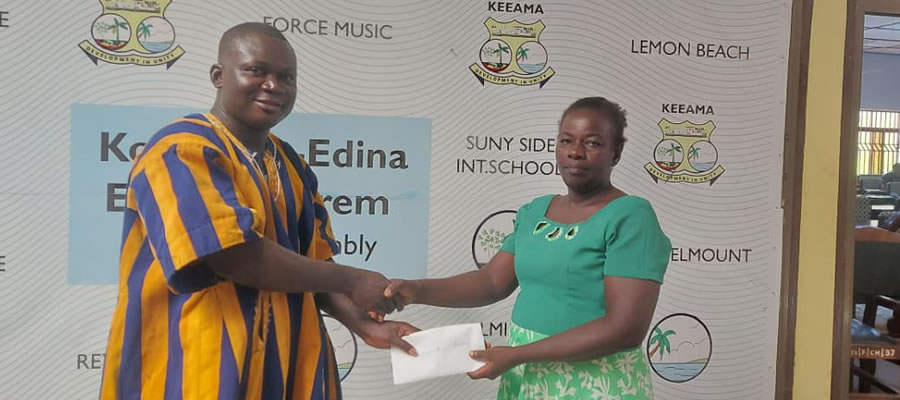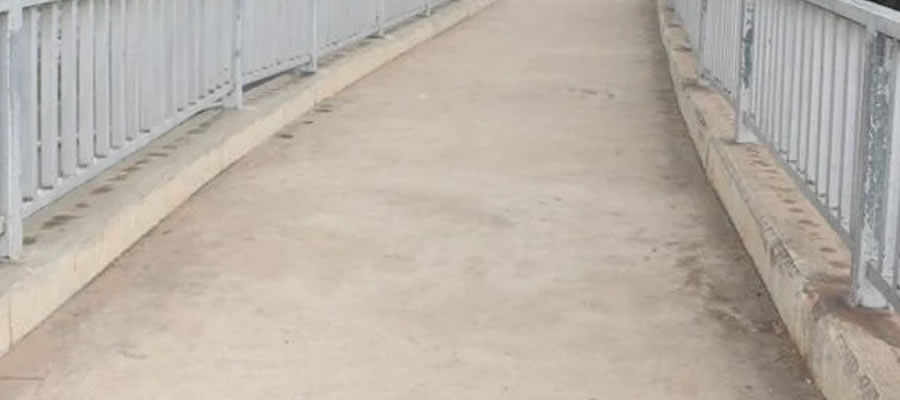

Micro/District Economy
Fish Storage
Fresh fish is usually stored in cold facilities. There are only two cold storage facilities at Elmina. However, there are no ice making plants. The inadequacy of storage facilities has resulted in the pervasive fish smoking along the coastal zone of the district. Alternatively, some of the smoked fish is converted into fish powder, which is packaged and sold out to consumers. This product can be preserved much longer than the smoked fish.
Market Infrastructure
Markets of different sizes and varieties abound in the district. The Elmina fish market is the dominant one in the area. Ordinary markets are found in the major settlements such as Komenda, Kissi, Kafodzidzi, Ayensudu, Eguafo and Abrem Agona. Some of the settlements have no market sheds. There is always a continuous flow of people especially women traders between the crop producing hinterland zone of the district and the coastal stretch where fish is obtained. Traders also come from outside the district to purchase fish along the coast as well as other foodstuffs produced in the Eguafo and Abrem areas with the intention of selling them outside the region.
Commercial and industrial goods are usually sold in these markets. These markets therefore serve as interchange points for all items.The major problems faced by these markets are the filth and lack of sanitary facilities. This situation has overwhelmed the District Assembly. The district assembly has constructed a new market complex at Elmina and is yet to be fully operational. This is to help ease the continuous pollution of the lagoon by traders who operate alongside it.
Investment And Business Potential
In the field of agriculture, the potential abounds for citrus, pineapple, sugarcane and vegetable growth and processing. There are large tracts of land suitable for all kinds of crops and fruits in the district. Sugarcane production is especially important in the district.The defunct sugar factory at Komenda with a supporting land area of 1,000 hectares could be reactivated to provide the basis for the revival of the sugar industry in the country.Small and medium size sugar mills could be established to produce sugar for local consumption. Citrus and pineapples could be processed into fruit juice, jam and marmalade.
The land tenure system practised in the district is a combination of freehold and leasehold, and tenancy terms are very favourable. Fishing and fish processing are vigorously done in the district.The second largest fishing port in the country is found in Elmina with over six hundred (600) canoes and fifty (50) in-shore vessels. The district contributes about fifteen per cent (15%) of the total fish output in the country. Fishes caught include herrings, mackerel, tuna, lobsters, shrimps and barracuda. Investors could invest in fish canning, cold storage and preservation as well as boat building.
The Elmina Fishing Harbour could also be expanded to take more boats and canoes. There is vast potential for salt production in the district. Investments are required for expansion of production and refining of salt for domestic, as well as industrial use. There are prospects for mining of precious stones and other minerals in the district.Investors are welcome to prospect for the following mineral resources in the district: gold, granite, clay (broken clay) and kaolin/Chinese clay, feldspar/granite rocks, Muscovite mica and quartz, among others.
For example, deposits of clay at Dominase is estimated at about 3,953,000 metric tones and has an approximate life span of 122 years. This can be used to manufacture table ware as well as brick and tiles for the building industry.In the area of real estate development, the KEEA District has a vast potential. There are large tracts of level land suitable for the building industry. The near exhaustion of land for building of dwelling houses at Cape Coast makes Elmina, which is very close and has large tracts of level land, the obvious and suitable place for real estate development, as well as private individuals looking for plots of land. The cost of a plot of land in Elmina, and the district in general, is comparatively cheaper.
The Assembly has the required infrastructure to support every investment.The district has a very good road network.There are 31 kms of asphalt roads and 1556.7 kms of feeder roads. Almost every town, village or hamlet could be reached in a motor car.The district is also connected to the national grid. Telephone and other communication facilities are also available in the district. In addition to the above mentioned, the Assembly has a package of incentives or assistance for potential investors. These are:
Assist investors to acquire land and ensure proper tenancy agreement.Exemption from property tax for a maximum of five years. Assist investors to get utility services in place. Opportunities for joint ventureship with the District Assembly. · Establishment of an investment office within the District Assembly to provide promotional and advisory services and the existence of decentralised departments in the District Assembly for consultations.The potential investor is assured of personal and investment security. There are large tracts of land suitable for all kinds of crops and fruits in the district. Sugar cane production is especially important in the district.
The defunct sugar factory at Komenda with a supporting land area of 1,000 hectares could be reactivated to provide the basis for the revival of the sugar industry in the country. Small and medium size sugar mills could be established to produce sugar for local consumption. Citrus and pineapples could be processed into fruit juice, jam and marmalade.The land tenure system practised in the district is a combination of freehold and leasehold, and tenancy terms are very favourable. Fishing and fish processing are vigorously done in the district. The second largest fishing port in the country is found in Elmina with over six hundred (600) canoes and fifty (50) in-shore vessels.
The district contributes about fifteen per cent (15%) of the total fish output in the country. Fishes caught include herrings, mackerel, tuna, lobsters, shrimps and barracuda.Investors could invest in fish canning, cold storage and preservation as well as boat building. The Elmina Fishing Harbour could also be expanded to take more boats and canoes. There is vast potential for salt production in the district.Investments are required for expansion of production and refining of salt for domestic, as well as industrial use. There are prospects for mining of precious stones and other minerals in the district.
Investors are welcome to prospect for the following mineral resources in the district: gold, granite, clay (broken clay) and kaolin/Chinese clay, feldspar/granite rocks, Muscovite mica and quartz, among others.For example, deposits of clay at Dominase is estimated at about 3,953,000 metric tones and has an approximate life span of 122 years. This can be used to manufacture table ware as well as brick and tiles for the building industry. In the area of real estate development, the KEEA District Assembly has the required infrastructure to support every investment.
The Private Sector
Due to the fact that Elmina has always been a trading and fishing town, the private sector is relatively well developed and is active players in the development of the town. Most of the occupations do know some kind of organisation. For example an important group like the Fisherman are not formerly organised but have a Chief Fisherman who can call all the fishermen at all times to discuss important issues.The motorised boat owners have however organised themselves in an association (approximately 40 members). The fishmongers have also elected a queen who can call meetings at all times like the market women who are also organised along the lines of their occupational groups.
In December 2000 a group of business people decided to establish a business association that contains members of mainly bigger private sector companies (Hotels, Salt Mining Companies). Also in December an Advisory Board was set-up after the first Consultative meeting organised by the Netherlands Embassy. This group contains members of all major public, private and popular groups in Elmina and meets regularly to advise on project activities and disseminate information on the project to their members.The Informal sector is becoming more and more important player.
Small Kiosks, shops, street vendors but also tourist touts can be found on the streets of the city. This informal sector is a major contributor to the town’s economy but can also become a nuisance and a health hazard. Especially along Liverpool Street and High Street, and several connecting streets, the number of informal and often unauthorised structures has become a nuisance. Kiosks are blocking the streets and walkways and contribute to the chaotic traffic situation in town. There is therefore an urgent need to review the present situation and come out with guidelines for structures for informal sector traders.’’
Date Created : 11/21/2017 4:45:28 AM








 facebook
facebook
 X
X
 Youtube
Youtube
 instagram
instagram
 +233 593 831 280
+233 593 831 280 0800 430 430
0800 430 430 GPS: GE-231-4383
GPS: GE-231-4383 info@ghanadistricts.com
info@ghanadistricts.com Box GP1044, Accra, Ghana
Box GP1044, Accra, Ghana